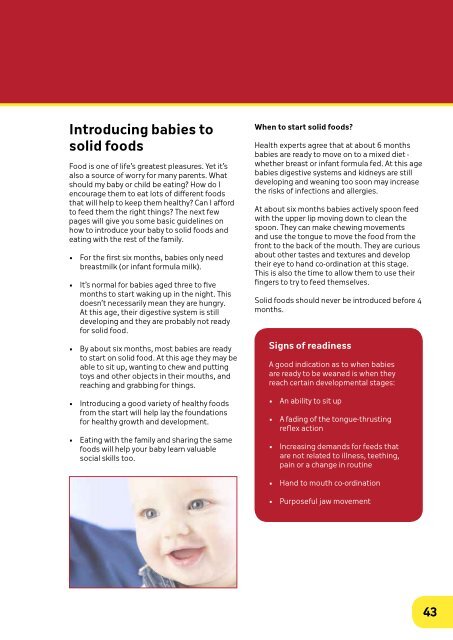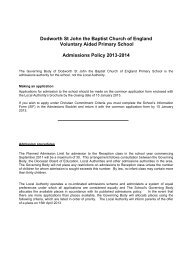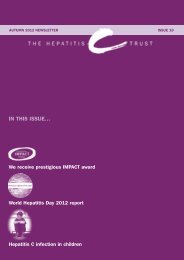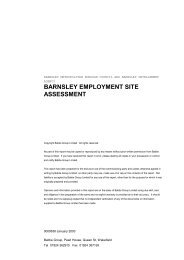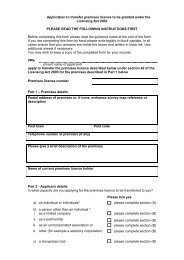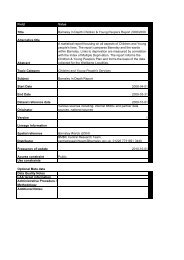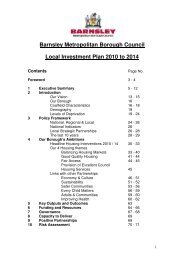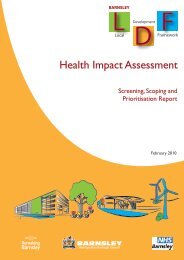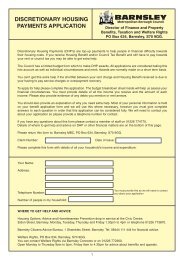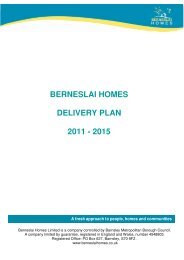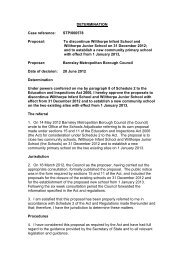Food and Nutrition Guidelines - Barnsley Council Online
Food and Nutrition Guidelines - Barnsley Council Online
Food and Nutrition Guidelines - Barnsley Council Online
Create successful ePaper yourself
Turn your PDF publications into a flip-book with our unique Google optimized e-Paper software.
Introducing babies to<br />
solid foods<br />
<strong>Food</strong> is one of life’s greatest pleasures. Yet it’s<br />
also a source of worry for many parents. What<br />
should my baby or child be eating? How do I<br />
encourage them to eat lots of different foods<br />
that will help to keep them healthy? Can I afford<br />
to feed them the right things? The next few<br />
pages will give you some basic guidelines on<br />
how to introduce your baby to solid foods <strong>and</strong><br />
eating with the rest of the family.<br />
• For the first six months, babies only need<br />
breastmilk (or infant formula milk).<br />
• It’s normal for babies aged three to five<br />
months to start waking up in the night. This<br />
doesn’t necessarily mean they are hungry.<br />
At this age, their digestive system is still<br />
developing <strong>and</strong> they are probably not ready<br />
for solid food.<br />
• By about six months, most babies are ready<br />
to start on solid food. At this age they may be<br />
able to sit up, wanting to chew <strong>and</strong> putting<br />
toys <strong>and</strong> other objects in their mouths, <strong>and</strong><br />
reaching <strong>and</strong> grabbing for things.<br />
• Introducing a good variety of healthy foods<br />
from the start will help lay the foundations<br />
for healthy growth <strong>and</strong> development.<br />
• Eating with the family <strong>and</strong> sharing the same<br />
foods will help your baby learn valuable<br />
social skills too.<br />
When to start solid foods?<br />
Health experts agree that at about 6 months<br />
babies are ready to move on to a mixed diet -<br />
whether breast or infant formula fed. At this age<br />
babies digestive systems <strong>and</strong> kidneys are still<br />
developing <strong>and</strong> weaning too soon may increase<br />
the risks of infections <strong>and</strong> allergies.<br />
At about six months babies actively spoon feed<br />
with the upper lip moving down to clean the<br />
spoon. They can make chewing movements<br />
<strong>and</strong> use the tongue to move the food from the<br />
front to the back of the mouth. They are curious<br />
about other tastes <strong>and</strong> textures <strong>and</strong> develop<br />
their eye to h<strong>and</strong> co-ordination at this stage.<br />
This is also the time to allow them to use their<br />
fingers to try to feed themselves.<br />
Solid foods should never be introduced before 4<br />
months.<br />
Signs of readiness<br />
A good indication as to when babies<br />
are ready to be weaned is when they<br />
reach certain developmental stages:<br />
• An ability to sit up<br />
• A fading of the tongue-thrusting<br />
reflex action<br />
• Increasing dem<strong>and</strong>s for feeds that<br />
are not related to illness, teething,<br />
pain or a change in routine<br />
• H<strong>and</strong> to mouth co-ordination<br />
• Purposeful jaw movement<br />
43


